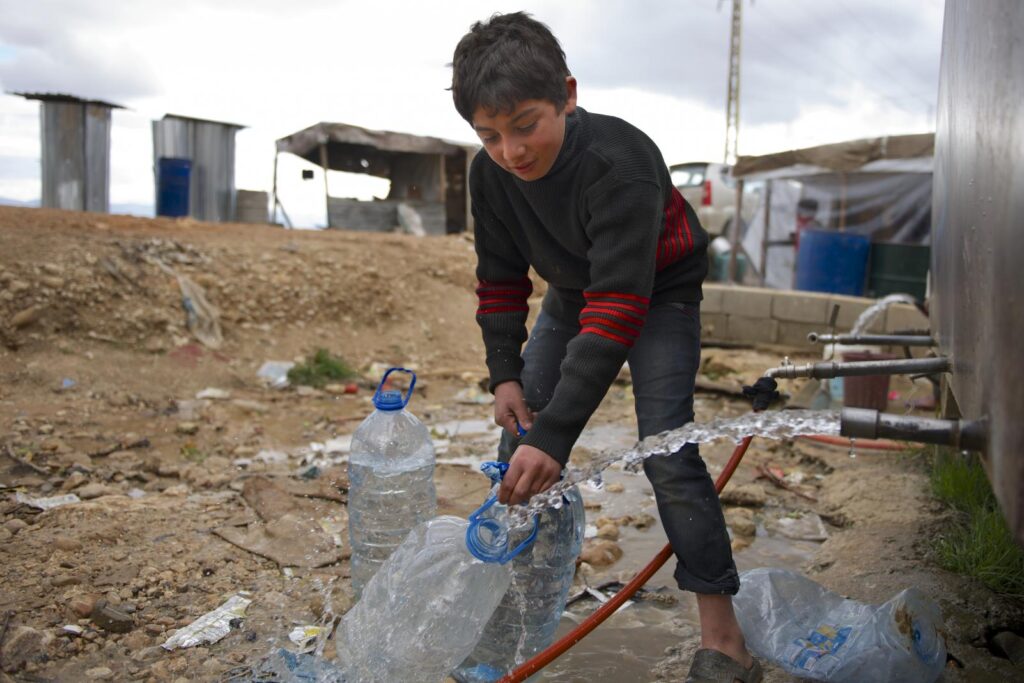LEBANON. Beirut. According to a report by UNICEF, around 30,000 people are facing a scarcity of water and sanitation services in Lebanon after the explosion that tore through Beirut 4 August.
Aftermath
Beirut Mount Lebanon (BML) Water Establishment along with UNICEF is assessing damage to public water networks. They are also providing support on repairs and re-operations wherever necessary.
The public water infrastructure sustained only minor damage and remains functional; however, the explosions worsened access to safe water within Beirut. A large number of water tanks and plumbing systems in buildings near the explosion are damaged. Around 130 buildings are completely disconnected from the main water network. The water systems of 50 occupied buildings are damaged.
Absence of basic amenities
With the increase in COVID-19 cases, UNICEF is making efforts to supply safe water and sanitation to families whose lives were overturned. Special precautions are taken as the danger of water-borne diseases along with COVID-19 can increase with inaccessibility to safe water.
According to the report, many households in affected neighbourhoods are purchasing either bottled or trucked drinking water. The prices are most likely to rise as temperatures increase. The situation is quite critical for the people in Beirut, especially for the estimated 30,000 people, including 10,000 children whose homes were damaged or destroyed.

Efforts to rebuild
With the efforts by UNICEF and BML, over 100 buildings are reconnected to the general public water system. Around 570 water tanks have been installed in damaged households. UNICEF has also provided drinking water to the first respondents. A total of 4,340 hygiene kits and 620 baby kits have been distributed by UNICEF to the affected families. A water trucking facility is being provided to twenty households and three hubs of the Lebanon Red Cross.
The authorities associated with UNICEF ensured that their immediate priority was to provide access to safe drinking water to the affected families. Around 6,650 children and their families have been helped by the authorities and partners in UNICEF.
UNICEF is working hard to provide resources and training to thousands of youth across Lebanon. Training sessions are been conducted to teach repair and maintenance of critical water and sanitation infrastructure. The people in Lebanon, especially the youth are working hard with the help of UNICEF to rebuild their nation.

